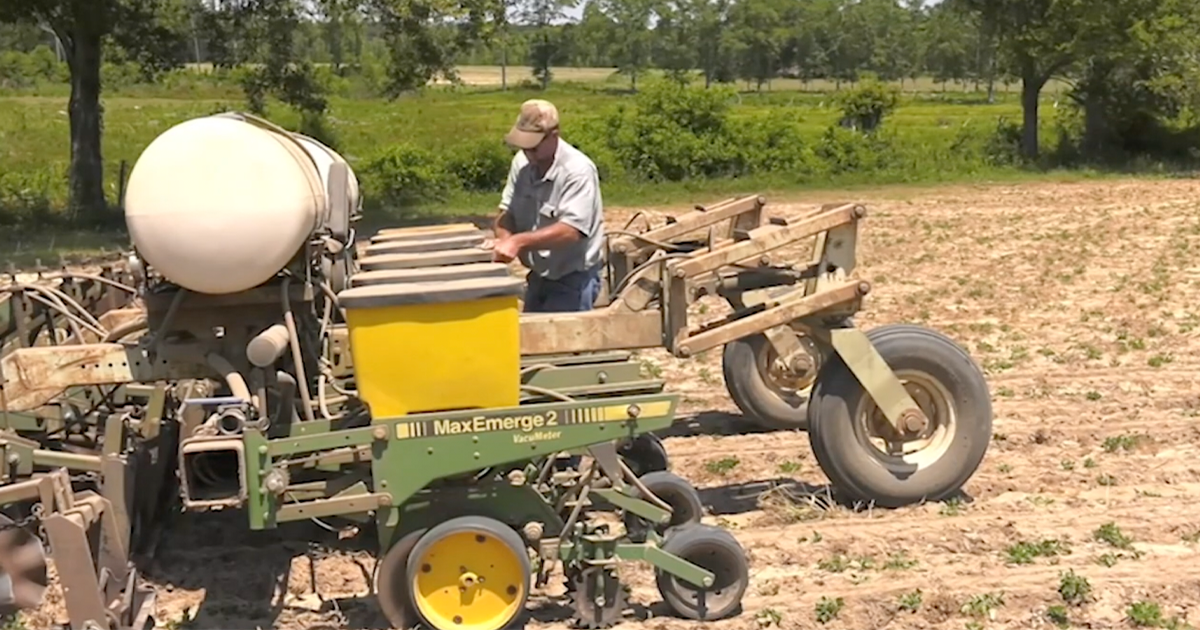Rome, GA |
Farmers dedicate their lives to cultivating the land, building not just livelihoods but legacies. With 70% of farming operations expected to transition within the next 15 years, the need for proactive farm succession planning has never been more urgent. Brian Bojo, a lawyer that often deals with estate law, sheds light on how farmers can prepare for the future while protecting their hard-earned assets and family relationships.
What Is Estate Planning?
Estate planning is about ensuring that your assets—land, equipment, savings, and more—are distributed according to your wishes after you pass away. “The goal is to make sure your ‘stuff’ goes to the people you care about, rather than to someone else or lost to taxes,” Bojo explains.
The process typically involves key legal documents:
- A Will: Outlines how assets are divided.
- Power of Attorney: Designates someone to act on your behalf if incapacitated.
- Advance Directive for Health Care: Specifies medical preferences and decision-making authority in emergencies.
Why Farmers Need a Plan
Farmers face unique estate planning challenges due to the complexity and value of their assets. Farmland, barns, silos, and equipment are not only sources of income but also symbols of a family’s legacy. “These assets often represent generations of hard work,” Bojo says.
Addressing Family Dynamics
Farming families often grapple with difficult questions during the planning process, particularly when it comes to fairness among heirs. While some children may be committed to continuing the farm operation, others may have no interest. Balancing these dynamics requires thoughtful consideration and open communication.
“How do you honor your legacy while being fair to all your heirs?” Bojo asks. He encourages families to reflect on their values, asking questions like:
- Do I want my grandchildren or great-grandchildren to work this land?
- Would I prefer to sell the property if my children aren’t interested in farming?
- How can I ensure family harmony while honoring my vision for the farm?
“There’s no wrong answer,” Bojo emphasizes. “What’s most important is making intentional decisions.”
The Case for Proactive Planning
Farmers often delay estate planning, preoccupied with immediate concerns like weather, crops, and equipment. “It’s easy to think, ‘I’ll get to it later,’” Bojo notes. But waiting too long can create uncertainty and conflict.
The process begins with reflection. “Start with a quiet moment on the porch,” Bojo suggests. “Ask yourself, ‘What do I want this to look like after I’m gone?’” Once you’ve envisioned your goals, communication is the next step.
Bojo stresses the importance of transparency with family members. Whether through formal sit-downs or one-on-one conversations, sharing your intentions can prevent misunderstandings and align expectations. “Sometimes parents assume their children’s desires, only to discover they’re mistaken. Open conversations are key,” Bojo explains.
Barriers to Estate Planning
One common hesitation is fear of upsetting family members. “Many people make decisions based on avoiding conflict, rather than focusing on their goals,” Bojo observes.
He advises shifting the perspective. “Think of it as stewardship. You’ve worked hard to build something meaningful, and it’s your responsibility to ensure it’s managed according to your values.”
For some, this includes prioritizing family harmony. “Many parents want to ensure their decisions don’t cause their children to stop speaking to each other. That’s a valid goal, but ultimately, you’re the boss. Your wishes should guide the plan.”
Getting Started
The idea of succession planning may feel overwhelming, but resources are readily available. Bojo suggests several starting points:
- Farm Bureau Representatives: Offer tailored resources for farm families.
- Experienced Attorneys: Specialize in estate planning for landowners and small businesses.
- Community Members: Share insights from their own experiences with probate or succession planning.
“It doesn’t matter where you start,” Bojo says. “What’s important is beginning the conversation.”
Preserving Your Legacy
For Bojo, working with farming families is an honor. “These are some of the hardest-working, most dedicated people. Their operations are built on years of effort and resilience.”
Succession planning is not about predicting the worst but ensuring continuity. By reflecting on your values, communicating openly with your family, and seeking professional guidance, you can create a plan that protects both your legacy and your loved ones.
In the end, Bojo reminds farmers, “You have the power to decide what happens to your life’s work. Take the time to plan—it’s a vital part of the stewardship you’ve already demonstrated through years of dedication to your farm.”
By: John Holcomb

